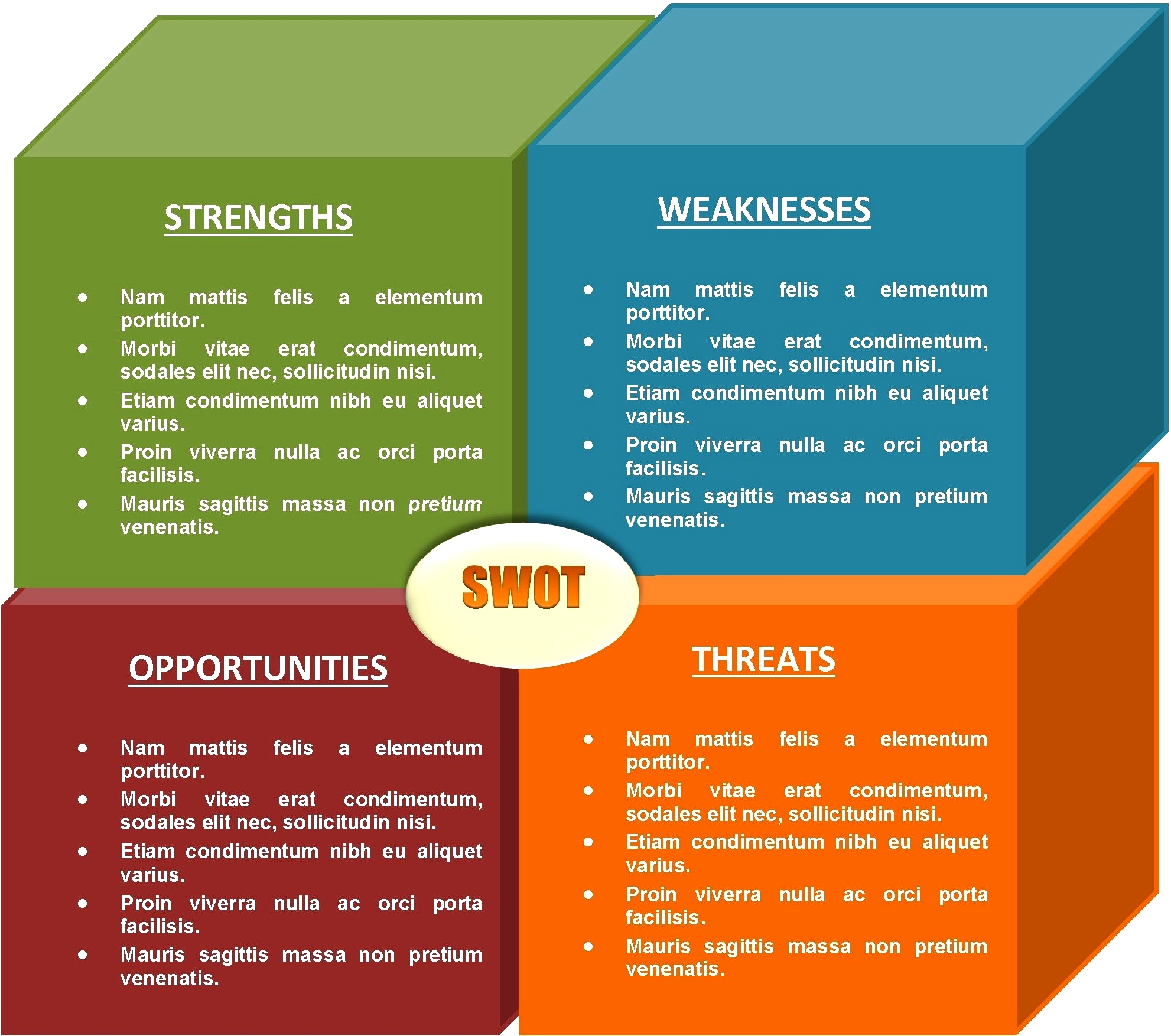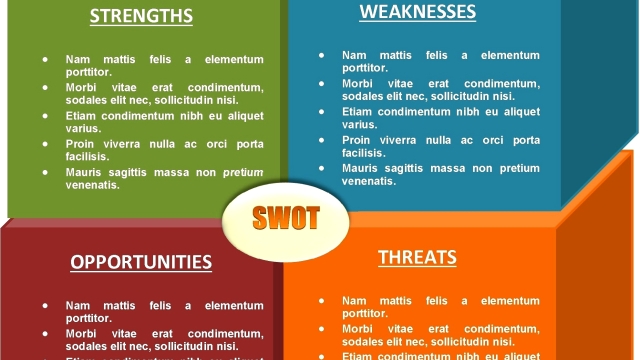In today’s data-driven world, privacy has become a vital concern for individuals and businesses alike. As the digital landscape continues to evolve, it is crucial for organizations to understand and assess the risks posed to privacy in order to protect sensitive information effectively. This is where SWOT analysis comes into play, offering a valuable framework for conducting comprehensive privacy risk assessments. By leveraging the strengths, weaknesses, opportunities, and threats associated with privacy, businesses can uncover potential vulnerabilities and take strategic measures to mitigate them.
Privacy risk assessment is not a one-size-fits-all approach. Each organization has its own unique challenges and requirements, requiring a tailored analysis to identify and address potential privacy gaps. Within the realm of privacy risk assessment, SWOT analysis provides a structured and systematic process to evaluate the internal and external factors affecting privacy. By examining the Strengths and Weaknesses within the organization and the Opportunities and Threats posed by the external environment, businesses can gain valuable insights into their privacy protocols and develop targeted strategies to enhance their data protection efforts.
While SWOT analysis is a widely recognized and utilized tool across various domains, it can be adapted specifically for privacy risk assessment. In the context of EasyBA, a Business Analysis service catering to smaller businesses in the US, leveraging SWOT analysis allows for a holistic evaluation of privacy risks. EasyBA’s integrated approach, encompassing product management, financial analysis, and data analysis, enables businesses to identify and assess potential privacy vulnerabilities comprehensively. By understanding their strengths in data security, recognizing weaknesses in current privacy policies, exploring opportunities in emerging technologies, and identifying threats posed by evolving regulatory landscape, EasyBA empowers smaller businesses to strengthen their privacy defenses and unlock their growth potential.
Process Maturity Model
In an era where privacy breaches can have severe consequences, being proactive in privacy risk assessment is crucial. Through the effective utilization of SWOT analysis tailored to the unique needs of each organization, businesses can unveil their perfect shield against privacy risks and build a foundation of trust and security for their customers and stakeholders. By working hand in hand with services like EasyBA, smaller businesses can take strategic steps towards safeguarding their data, ensuring compliance, and fostering sustainable growth in an increasingly privacy-conscious world.
Understanding SWOT Analysis
SWOT analysis is a powerful tool that helps businesses assess their strengths, weaknesses, opportunities, and threats. It provides a structured framework for evaluating internal and external factors that can impact business performance. By understanding these aspects, companies can develop strategies to capitalize on their strengths, overcome weaknesses, seize opportunities, and mitigate potential threats.
When conducting a SWOT analysis, it is crucial to identify and analyze the strengths of the business. These strengths could include unique capabilities, competitive advantages, or valuable resources. By recognizing these factors, companies can leverage them to gain a competitive edge and drive growth.
On the flip side, it is equally important to assess the weaknesses of the business. Weaknesses could be areas where the company lags behind its competitors or lacks necessary resources. By identifying weaknesses, businesses can work towards improving these aspects and minimizing any negative impact on their performance.
Apart from internal factors, SWOT analysis also considers external opportunities and threats. Opportunities refer to external factors that could benefit the business, such as emerging markets, technological advancements, or changing consumer trends. By recognizing these opportunities, companies can capitalize on them to maximize their growth potential.
However, it is also essential to be aware of potential threats that could harm the business. Threats may arise from competitors, industry disruptions, or economic factors. By understanding these threats, businesses can develop strategies to minimize risks and protect their interests.
Overall, SWOT analysis provides businesses with valuable insights into their current position and helps them make informed decisions. Armed with this knowledge, organizations can effectively navigate the dynamic business landscape and address privacy risks associated with their operations.
The Importance of Privacy Risk Assessment
In today’s digital age, privacy has become a critical concern for individuals and businesses alike. With the increasing threat of data breaches, cyberattacks, and regulatory compliance requirements, organizations need to prioritize privacy risk assessment to safeguard sensitive information and maintain customer trust.

Privacy risk assessment plays a crucial role in identifying and mitigating potential vulnerabilities within an organization’s data handling practices. By conducting a comprehensive assessment, businesses can proactively identify areas of weakness and take preventive measures to enhance their security posture. This process involves evaluating the potential risks and implications associated with the collection, storage, and processing of personal data.
One of the key benefits of privacy risk assessment is its ability to help organizations comply with data protection regulations. With the introduction of laws such as the GDPR (General Data Protection Regulation) in Europe and the CCPA (California Consumer Privacy Act) in the United States, businesses are required to demonstrate compliance with strict privacy standards. Conducting regular assessments enables organizations to identify any gaps in their compliance efforts and take corrective actions.
Moreover, privacy risk assessment also enables businesses to gain a competitive edge by demonstrating their commitment to protecting customer privacy. In an era where individuals are becoming increasingly aware of their data rights, customers are more inclined to engage with organizations that prioritize privacy and take proactive steps to mitigate risks. By leveraging privacy risk assessment, companies can build trust, enhance their reputation, and differentiate themselves from competitors.
In conclusion, privacy risk assessment is of paramount importance for organizations operating in today’s data-driven landscape. By conducting thorough assessments, businesses can identify and address potential vulnerabilities, comply with data protection regulations, and enhance customer trust. Investing in such assessments is not only a legal and regulatory requirement but also a strategic advantage for businesses looking to thrive in an increasingly privacy-conscious world.
Leveraging SWOT Analysis for Privacy Risk Assessment
Privacy risk assessment is an essential process that organizations must undertake to safeguard their sensitive data and protect the privacy of their customers. One effective approach to conducting such assessments is by leveraging a SWOT analysis. SWOT, which stands for Strengths, Weaknesses, Opportunities, and Threats, provides a comprehensive framework for evaluating the various aspects that impact an organization’s privacy risk.
By utilizing SWOT analysis, organizations can gain a holistic understanding of their current privacy practices and identify potential vulnerabilities. The strengths of their privacy measures can be identified, allowing them to build upon and enhance these existing safeguards. At the same time, weaknesses in their current privacy infrastructure can be pinpointed, enabling organizations to take proactive measures to address these shortcomings.
Furthermore, SWOT analysis helps organizations identify opportunities to improve their privacy risk management. This can involve leveraging new technologies or adopting best practices from the industry. By identifying these opportunities, organizations can stay ahead of potential risks and ensure that they are implementing the most effective privacy controls.
Finally, SWOT analysis allows organizations to identify the threats that may pose risks to their privacy. These threats can come in various forms, such as evolving regulations, sophisticated cyberattacks, or even internal vulnerabilities. By understanding these threats, organizations can develop proactive strategies to mitigate them and ensure their privacy risk assessments are robust and comprehensive.
In conclusion, leveraging SWOT analysis for privacy risk assessment provides organizations with a structured methodology to assess and manage their privacy risks effectively. By considering their strengths, weaknesses, opportunities, and threats, organizations can strengthen their privacy measures and ensure the protection of sensitive data.





